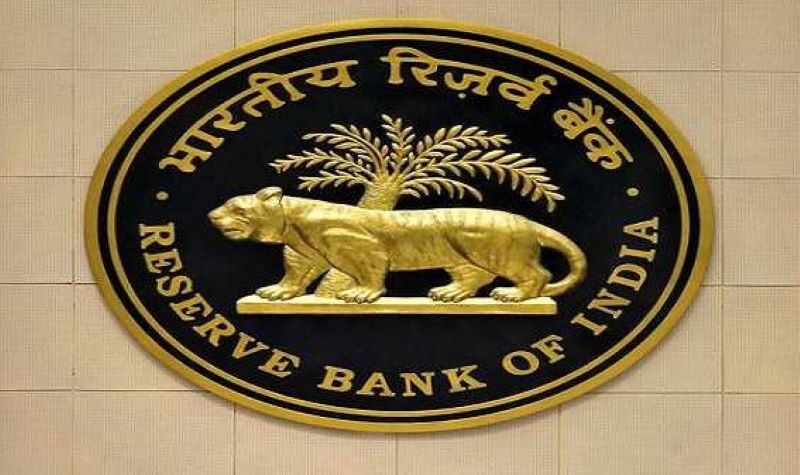 Paytm Payment Banks
Paytm Payment Banks
Reasons for RBI's crackdown on Paytm Payments Bank: Report
Mumbai: The Reserve Bank of India (RBI) started a major crackdown on Paytm Payments Bank, citing complete neglect by the company for regulatory standards and compliance requirements, media reports said.
This has raised major concerns regarding both the promoters' and the group's commitment to transparency, Moneycontrol reported quoting a source familiar with the matter.
"The present action by the RBI is to protect the financial system and prevent a payment bank which is a RBI regulated entity dealing in public money, being run in a manner detrimental to the interest of its depositors, customers, and other genuine stakeholders," the person told Moneycontrol on conditions of anonymity.
On January 31, the RBI imposed major operational restrictions on Paytm Payments Bank, which include discontinuation of accepting new deposits and conducting credit transactions after February 29.
This action follows the central bank's previous move in March 2022, where Paytm Payments Bank was prohibited from onboarding new customers.
The RBI discovered major irregularities in the Know Your Customer (KYC) processes, revealing a major risk to the security of customers, depositors, and wallet holders.
These issues include the absence of Know Your Customer (KYC) documentation for a considerable number of customers, reaching hundreds of thousands, as well as failures in PAN validation for thousands of accounts.
The investigation by the RBI revealed thousands of instances where a single PAN was linked to over 100 customers, and in some cases, more than 1,000 customers, leading to transactions of substantial value, surpassing regulatory limits for minimum KYC pre-paid instruments and raising concerns about potential money laundering.
The regulatory body also identified an unusually high number of dormant accounts, which could be susceptible to use as mule accounts. There are also concerns about money laundering arising from deficiencies in the bank's KYC processes and the absence of a transaction monitoring system, the report said.
"In lakhs of cases, the accounts and wallets have been frozen by various Law Enforcement Authorities across the country, as such accounts were used for committing digital frauds," the source said, according to the report.
Moreover, Paytm Payments Bank Limited's (PPBL) financial and non-financial activities were intermingled with its promoter group companies, contravening licensing conditions and RBI directives on this matter, according to the report.
The source added that PPBL's reliance on the IT infrastructure of OCL remained absolute, and there was no operational segregation.
It was noted that numerous transactions were routed through the apps owned by the parent entity, giving rise to significant concerns regarding data privacy and data sharing.
The source said quoted by Moneycontrol said that on multiple occasions, the compliance submitted by the bank was discovered to be false during verification, conducted by both RBI supervisors and external auditors.
Further, there were instances of non-disclosure of significant intra-group transactions and related party transactions. The report also stated that the bank's substantial payables to OCL were not disclosed in the financial statements of the bank.
"Further, agreements were being often revised to benefit the OCL or its group companies, and detrimental to the bank and its clients," the source added.
Paytm Payments Bank Limited (PPBL) obtained a banking license from the RBI in January 2017, enabling it to function as a payments bank. The commencement of its operations took place in May 2017, encompassing services such as wallets, savings accounts, prepaid instruments, and the National Common Mobility Card.
For example, the person noted that within one year of initiating its operations, Paytm Payments Bank Limited (PPBL) exhibited non-compliance with specific licensing conditions. This included breaches related to day-end balances in customer accounts, failure to maintain an arm's length in business transactions with its group entities (One 97 Communication Ltd. – OCL), and significant KYC violations.
As per RBI regulations, payment banks were initially allowed to hold only up to Rs one lakh per customer, a limit that was later increased to Rs 2 lakhs effective from April 8, 2021.
Consequently, restrictions on opening new accounts were enforced in June 2018. However, these restrictions were lifted in December 2018 following compliance submissions and an undertaking provided by the bank.
Subsequently, in late 2021, the RBI identified serious KYC AML (anti-money laundering) violations.
“Despite engaging with the bank to address these deficiencies, they continued to persist. The compliances submitted by the bank were found to be incomplete and false on many occasions,” the source further added, the report said.
Consequently, in March 2022, the RBI enforced supervisory restrictions on PPBL, halting the onboarding of new customers immediately. The central bank also mandated the appointment of an external audit firm to conduct a thorough system audit.
Following the availability of the system auditor's report in the latter part of 2022, the person mentioned that no substantial corrective actions were observed on the part of the bank.
Responding to the RBI action, Paytm informed the exchanges that it is "taking immediate steps to comply with RBI directions, including working with the regulator to address their concerns as quickly as possible.
Further, the company said depending on the nature of the resolution, it estimates the worst-case impact at Rs 300-500 crore on its annual EBITDA. "However, the company expects to continue on its trajectory to improve its profitability," Paytm added.
Support Our Journalism
We cannot do without you.. your contribution supports unbiased journalism
IBNS is not driven by any ism- not wokeism, not racism, not skewed secularism, not hyper right-wing or left liberal ideals, nor by any hardline religious beliefs or hyper nationalism. We want to serve you good old objective news, as they are. We do not judge or preach. We let people decide for themselves. We only try to present factual and well-sourced news.






